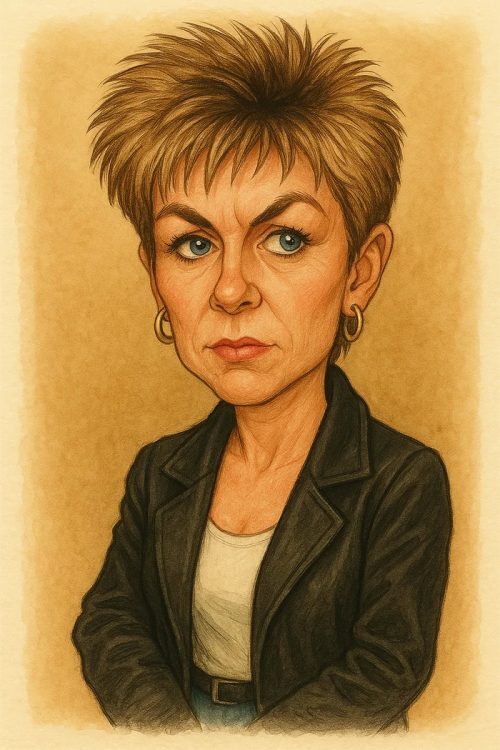Leslie Ash: From Fairy Liquid to Fearless Recovery
Early Life & First Steps in Showbiz
Leslie Ash was born on 19 February 1960 in Henley-on-Thames, Oxfordshire. She made her screen debut at age four in a famous Fairy Liquid commercial. Her question, “Mummy, why are your hands so soft?” became instantly iconic.
Following this early exposure, she worked as a teen model, appearing on magazine covers like Pink and Jackie. She then trained in drama at the Italia Conti Academy in the late 1970s.
Breakthrough in Film: Quadrophenia
Ash’s breakthrough came with the cult classic *Quadrophenia* (1979). She played Steph opposite Phil Daniels. Set against London’s Mod scene, the film gained cult status and firmly launched her screen career.
Building a Career in the 1980s
During the 1980s, Ash took a variety of roles. She appeared in *Rosie Dixon – Night Nurse* and *Curse of the Pink Panther*. She also starred as Fred Smith in *C.A.T.S. Eyes* (1985–1987), showcasing her versatility across comedy and drama.
Additionally, she co-presented Channel 4’s *The Tube* alongside Jools Holland and Paula Yates, demonstrating her adaptability both in front of and behind the camera.
Mainstream Fame: Men Behaving Badly
Her defining role arrived in *Men Behaving Badly* (1992–1998), where she played Deborah “Debs” Burton. The sitcom became a cultural phenomenon, and Ash’s chemistry with co-star Martin Clunes made her a household name.
Sustained TV Success & Health Crisis
After the sitcom concluded, Ash continued working in drama. She appeared in *Where the Heart Is* and notably in *Holby City* as Vanessa Lytton.
However, in 2003 she contracted MRSA during a hospital stay. The infection left her seriously ill and led to a long legal battle. In 2008 she won a £5 million settlement from the NHS Trust.
Demonstrating courage, she returned to acting by 2009. She appeared in documentaries like *Leslie Ash: Face to Face*, and took on guest roles in TV and theatre.
Film, Stage & Voice Work
Ash maintained a presence across mediums. She appeared in BBC Radio 4’s *Vent*, and narrated several documentaries and commercials.
On screen, she appeared in *Shadey* and *The Balance of Nature*, and continued to command attention in both supporting and leading roles.
Personal Journey & Advocacy
Ash’s MRSA ordeal transformed her life. She openly shared her recovery journey and used her platform to raise awareness about hospital-acquired infections.
In 2007 she published *My Life Behaving Badly*, detailing her experiences. Since then, she remains a passionate advocate for patient safety and hospital hygiene standards.
Acting Style & Screen Presence
Leslie Ash brings a unique mix of warmth, emotional depth, and comedic timing. Her early sitcom roles highlight quick wit, while her later dramas demonstrate resilience.
Her off-screen strength shines through in every performance. As a result, her work resonates with authenticity and courage.
Awards & Recognition
Ash is respected for her career achievements and personal recovery. Although formal awards are scarce, she continues to inspire through advocacy and strong performances.
Final Word
Leslie Ash represents both charm and tenacity. From her earliest days in a Fairy Liquid advert to her breakout sitcom success and her courageous return after a health crisis, she has shown remarkable grit.
Her journey of recovery and advocacy adds profound depth to her screen work. She remains a respected figure, admired not just for her talent, but also for her honesty and resilience.
FAQ – Leslie Ash
- What was Leslie Ash’s first on-screen role? A Fairy Liquid commercial at age four.
- Which role made her famous? Deborah “Debs” Burton in *Men Behaving Badly*.
- Did she return to acting after her illness? Yes—she returned with roles in *Holby City* and documentary features.
- Has she written about her life? Yes—she authored *My Life Behaving Badly* in 2007.
- Is she currently active? Absolutely—she continues acting in TV, theatre, and voice work.
